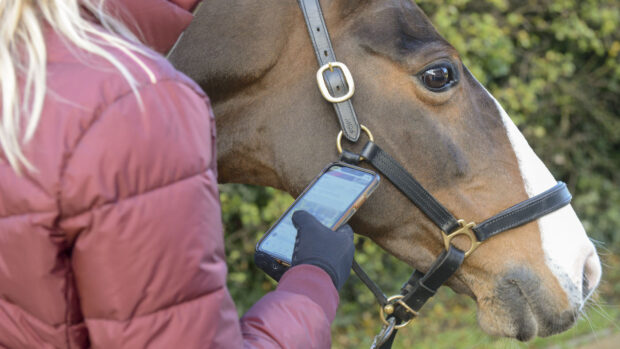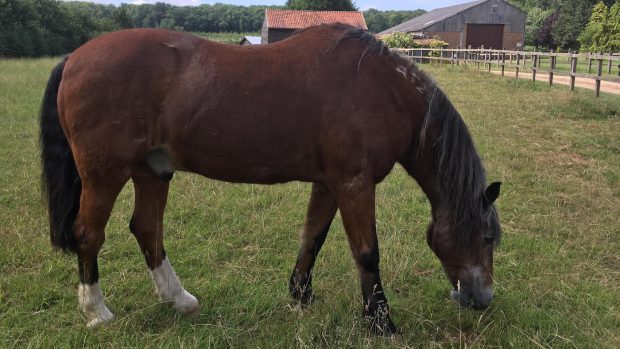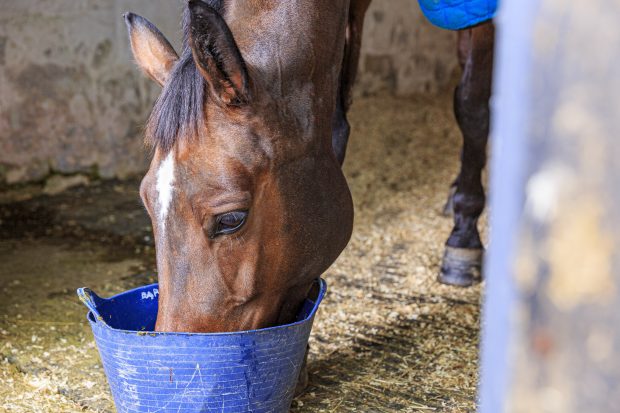Spillers' equine nutritionist Clare Barfoot provides one H&H forum user with some helpful advice on how to feed a horse with poor hooves
Q: “I’m interested to find out what people feed to their horses with poor hooves. Not just the specific hoof supplement but what they feed alongside it too.
My horse has thin hoof walls that tend to dry up and break off below the nail line in the summer. Usually his feet are looking better again by now but this year they’re not. I think there are some farriery issues to address but I’m reviewing his feed as well to see if this helps. He is currently fed a low calorie or performance balancer depending on his workload, along with Alfa A molasses-free and a hoof supplement. He looks and feels well on the balancer apart from the hoof issue, and I have the issue that he is allergic to oats so can’t have anything with oat feed or oat straw in it, which does limit my options a bit.
So my options are stick with the balancer and try a different hoof supplement or ditch the current brand of balancer altogether and try something completely different.
Basically I’m just very confused with all the different options available and the conflicting advice that seems to be out there nowadays. So really I’m after suggestions from people who have managed to turn their horse’s hoof health around.”
A: The importance of hoof health has been known for generations of horsemen with the saying “no hoof, no horse” often quoted. Hoof problems are a very common headache for horse owners and while good farriery is essential, the importance of sound nutrition is often overlooked. Nutrition can play a vital role in the cause and prevention of many hoof problems therefore promoting healthy hoof growth is dependent on a well-balanced diet.
A balanced diet is key
Hoof formation is a highly complex biological process requiring good quality protein, vitamins, minerals, fats and not least energy! All of these need to be present in sufficient quantities and in correct proportions to produce a strong hoof so the entire diet needs to be balanced. Adding lots of one particular nutrient to a poor diet is unlikely to be of any benefit and some nutrients can even cause more harm than good if given in excess; for example, vitamin A and selenium can actually cause hoof problems if they are added to the diet at very high levels.
Continued below…
Related articles:
- H&H forum: find out what H&H readers suggested
- 10 golden rules of feeding
- Read more advice on feeding your horse
Good doers and horses in very light work often get all of the calories they need from grass, hay or haylage but forage-only diets often lack some essential nutrients. As far as diet is concerned, the first step towards tackling hoof problems in horses on forage only diets should be to provide a good quality feed balancer such as SPILLERS Daily Balancer or a broad spectrum supplement. This also applies to horses receiving less than the recommended daily ration of compound feed.
What about additional supplements?
If you are confident that your horse’s current diet is fully balanced and meets all of his normal requirements, additional supplementation may help with poor hoof quality. Biotin is probably the most well-known nutrient as far as hoof supplements are concerned; this member of the B vitamin family is a key component for hoof horn quality and there is also scientific evidence to support this. Biotin should be fed at around 15 to 20mg per day for a typical 500kg horse i.e. 3 to 4mg per 100kg bodyweight. Calcium, phosphorus, zinc, MSM, lysine and methionine may also be useful additions to a hoof supplement.
Continued below…
Feeding supplemental oil in the diet to some horses with poor hoof quality may help although there is little scientific evidence to support this, although one study showed good results with 30mls of evening primrose oil mixed with maize and cod liver oil.





